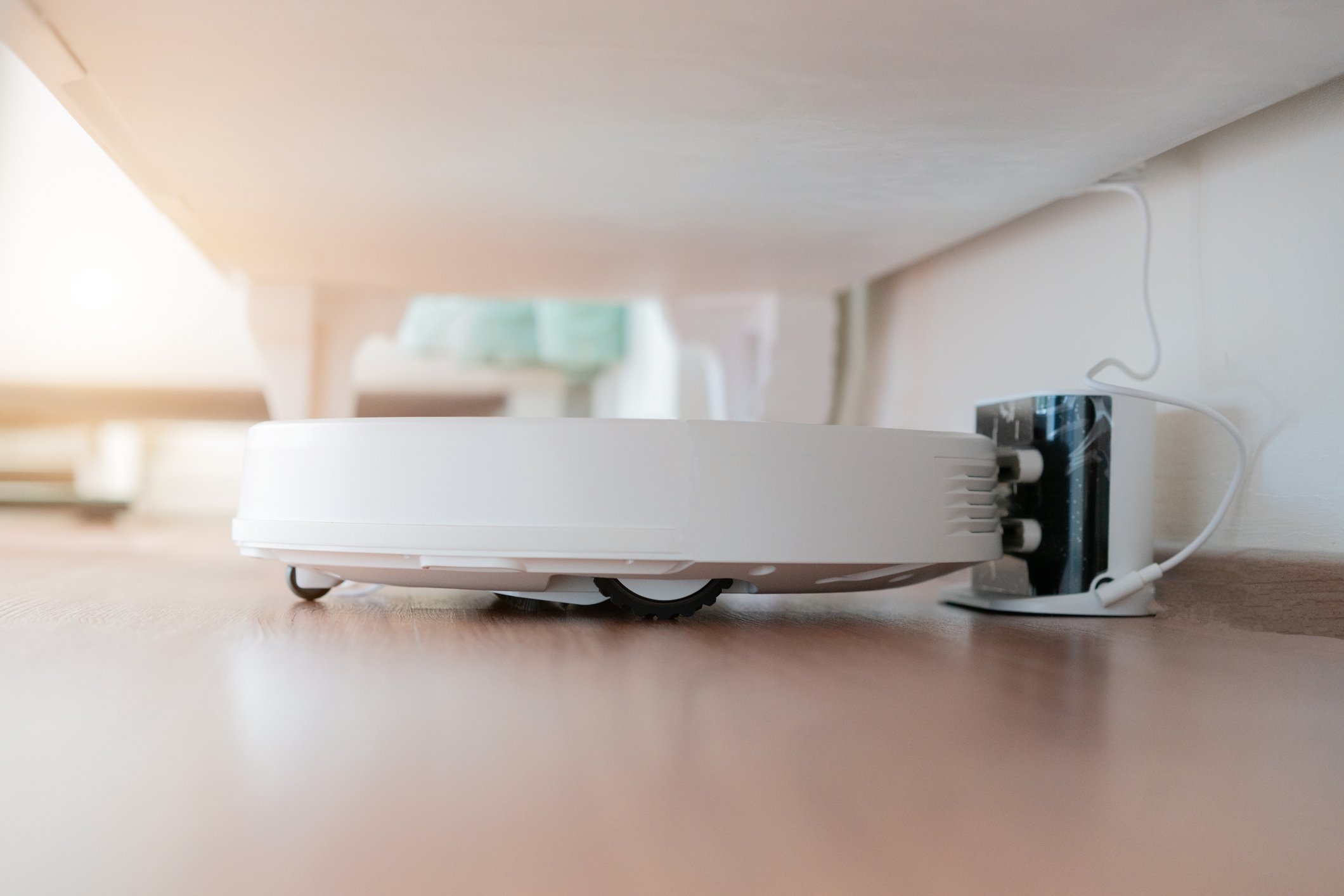Google -- now renamed Alphabet (GOOG +1.08%)(GOOGL +1.04%), following a restructuring in late 2015 -- has come a long way from its initial public offering in early 2004. Shares have climbed more than 1,600% over the past 13 years, as of this writing. And with Alphabet stock trading near an all-time high thanks to its latest stellar quarter, it's clear that the internet search juggernaut is as strong as ever.
But are there any companies today that look similar to Google circa 2004?
When we asked that question of three Motley Fool contributors, they offered iRobot (IRBT +7.69%), TripAdvisor (TRIP +2.83%), and Square (SQ +1.95%) as shining Google-esque portfolio candidates. Read on to learn why.

IMAGE SOURCE: GETTY IMAGES.
Invest in this robotics leader
Steve Symington (iRobot): It's been a while since iRobot's 2005 IPO. But there's a case to be made that, similar to Google in 2004, as far as growth is concerned, the home-robot specialist is only just getting started.
Last quarter, for example, iRobot's revenue climbed 28.8% year over year to $168.5 million, including 32% growth in consumer robot revenue driven by strong demand in all regions for its high-end (and high-margin) Roomba 900 series robotic vacuums. iRobot also saw sales of its newer Braava floor-mopping robots nearly double to make up around 10% of total revenue, offering a much-desired bit of diversification for investors who are leery of the company's current reliance on Roomba.
Much in the same way Google is expanding its reach with its "other bets" segment outside of the core internet search business, iRobot isn't stopping with its current product lines. In 2015, for example, iRobot revealed it was in the early stages of designing a differentiated robotic lawn mower, which itself could propel the company into a new multibillion-dollar market.
But even then, iRobot should do just fine riding the growth of its existing product lines. During last quarter's conference call, iRobot co-founder and CEO Colin Angle insisted that the robotic vacuum cleaner segment "is at an inflection point," and on the cusp of an explosion in adoption as more households move away from traditional upright models. iRobot's entry-level Roomba was the vacuum cleaner with the most sales in the United States last year -- not just among robotic vacuums, but among all vacuum models. As more people find the value proposition of iRobot's products appealing, these innovations will only become a more ubiquitous part of our lives.
Searching for experiences
Demitri Kalogeropoulos (TripAdvisor): Like Google in its early days as a public company, TripAdvisor is working hard to solve a search problem for a huge base of users. The company aims to help travelers enjoy the best possible trips by matching them to the locations, hotels, restaurants, and attractions that meet their unique needs.
In its 2004 IPO letter, Google's management explained that it would always prioritize moves that maximized long-term growth. "If opportunities arise that might cause us to sacrifice short term results but are in the best long term interest of our shareholders," executives wrote at the time, "we will take those opportunities."
TripAdvisor could be in the middle of just such a trade-off, given that its switch away from a per-click marketing model sent sales and profits slumping last year. The new instant-booking service drove sharp declines in its core hotel business even though management saw it as a critical step toward creating a world-class travel-shopping experience.
There are signs that the bet is starting to pay off. Average hotel shopper revenue improved last quarter after six straight quarters of declines. The company believes profitability will begin improving, too, now that it's completed the move to a more mobile-friendly monetization strategy. If that pans out, there's a large potential market out there to attack. TripAdvisor's $1.5 billion of revenue is a tiny fraction of the $567 billion of annual online travel spending worldwide. That segment stands to log robust growth over many years as travelers transition to booking their own trips online.
It's cool to be Square
Sean Williams (Square): When I think of Google in 2004, I'm reminded of a burgeoning search and advertising powerhouse that had a clear path to dominant market share, but which still had a number of major competitors. A financial technology services company that I see in an intriguing parallel with Google from more than a decade ago is alternative-payment processor Square.
The payment-processing industry is largely dominated by giants such as Visa and Mastercard, which have built their infrastructure up over decades and developed substantial rapport with their merchants. Square offers an alternative to traditional payment networks by providing an on-the-go hardware device that can be attached to a point-of-sale machine or even a smartphone or tablet. It's essentially the perfect alternative for small businesses, which is the niche Square is looking to occupy.
Square could be intriguing for a number of reasons, beyond just being a payment alternative to Visa or MasterCard. For example, it's only now beginning to expand into international markets. The company launched in the U.K. during the first quarter, representing just the fourth country outside the U.S. that it operates in. The opportunity in Europe, Asia, and even the Middle East and Africa is enormous over the long run, giving Square what I believe could be a multidecade opportunity to grow its gross payment volume (GPV) by around 10% annually.
Square's brand name and visibility are also beginning to catch on with larger retailers. As noted during the company's Q1 report, retailers with more than $125,000 in annual GPV grew 44% year over year and accounted for 43% of total GPV in the quarter, up 4 percentage points from the prior-year period. If Square can find a way to latch on to more small and midsize businesses, it could become a serious threat to the established payment networks.
Given Square's double-digit long-term growth potential, investors looking for the next Google would be wise to take a closer look.









